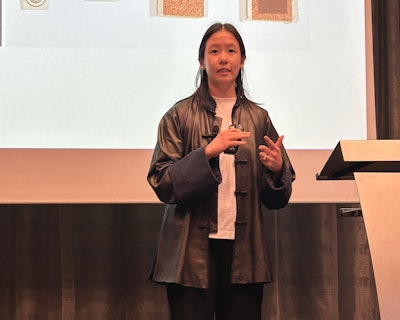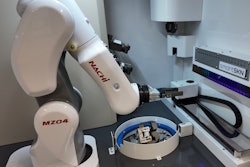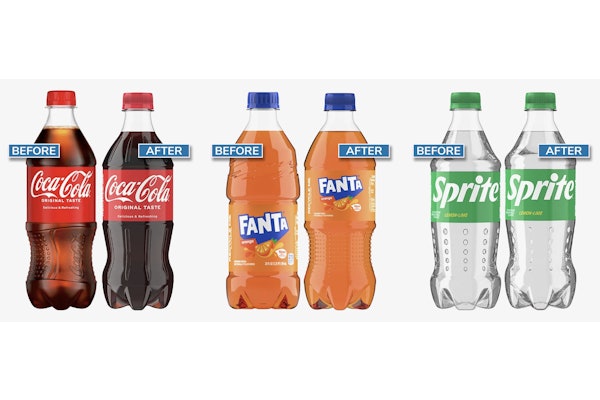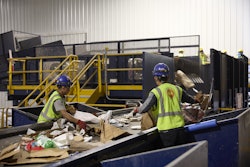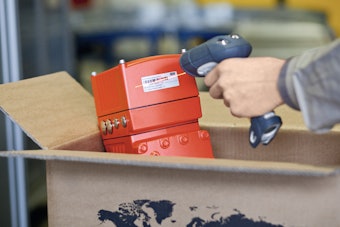Startup PulpaTronics has found a unique way to make RFID a more sustainable strategy. At the AIPIA & AWA Smart Packaging World Congress in Amsterdam today, Chloe So, co-founder and CEO of the company discussed the significant waste resulting from current-day RFID solutions and her company’s efforts to find an alternative to non-recyclable RFID materials.
Said So, “So as you all know already, RFID technology has been instrumental in inventory management from supply chain tracking, inventory stock counting, all the way to anti-theft. But maybe you didn’t know that every year more than 40 billion RFID tags usually end up in landfill after a really short lifespan, or they get recycled, but none of the materials that go into it get recovered at all. So they’re resource intensive, costly, and polluting to make.”
As an alternative, PulpaTronics has developed fully chip-less and metal-free smart tags made from paper that cut CO2 emissions by 70% as well as brings down the cost by two times versus standard metal tags. The technology involves using laser technology to induce a conducive circuitry directly from the substrate. “So essentially what we’re doing is turning the carbon ingredient in our paper into a conducive, carbon-based material closer to graphite or graphene,” explained So. “By doing that, we actually reduce and eliminate components. We simplify the entire manufacturing process, and the end product is simply just paper.”
The process results in tags that are recyclable through existing systems “for a more circular economy,” said So.
She noted that most of the company’s R&D lies within two areas: the substrate and the laser etching. PulpaTronics is currently focused on paper, but it has determined that the technology can potentially expand to other plant-based materials such as cotton, coconut shells, or banana peels.
Said So, “There are a lot of big players in the [RFID] field, everyone does a really good job at already. However, no one’s commercialized RFID tags that are metal free, and no one’s also commercialized eco tags that are actually cost-effective.”
The U.K.-based company is currently looking to start there, before expanding to other geographies. Among the markets it’s looking at are healthcare, apparel, and FMCGs/CPGs.
PulpaTronics 18-month plan is as follows:
· Q4-24: Finalize product specifications
· Q1-25: In-house production
· Q2-25: Pilot with retail partner
· Q3-25: Pilot with packaging partner
· Q4-25: Design large-scale production line
· Q1-26: Partner with suppliers
PulpaTronics is going to market with its hybrid product first. “ You can think of it as a metal free UHF RFID type of label,” So explained. “It works with the existing infrastructure and it can also function the same way. These tags already have a cost margin improvement over industry standards of around 8% all the way to 37%.”
So concluded by saying, “We are someone who’s really trying to push for sustainability, and we truly believe our product can help you with your sustainability goals. So we are making sure that we understand what the impact of that is, what are the targets you have as a company, and how can we help you achieve those numbers and pack it in a nice narrative. We’re looking to help businesses save more, increase item level tracking across more industries, and preserve more of our world resources.” PW
